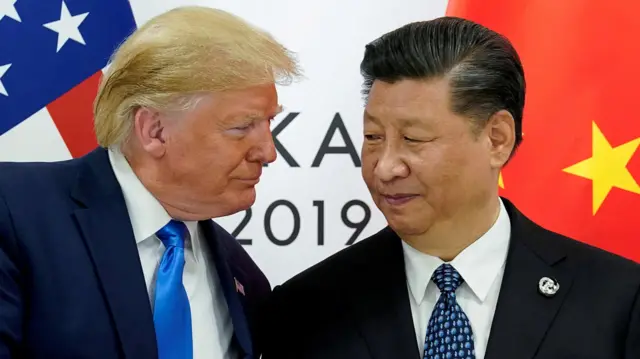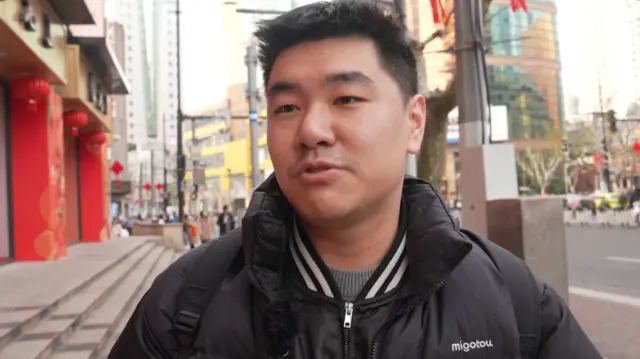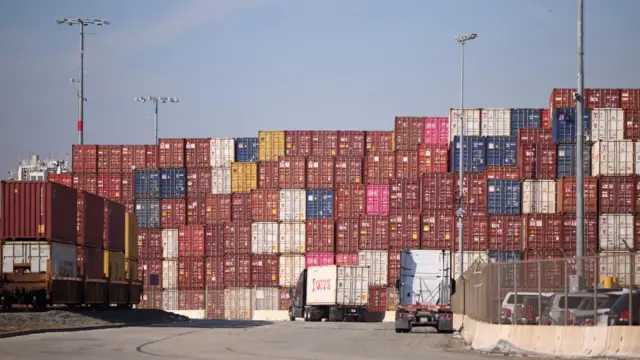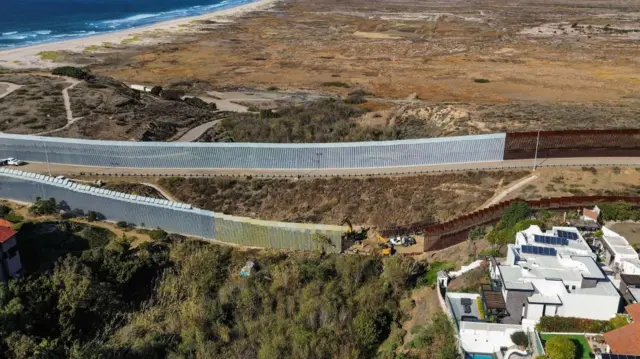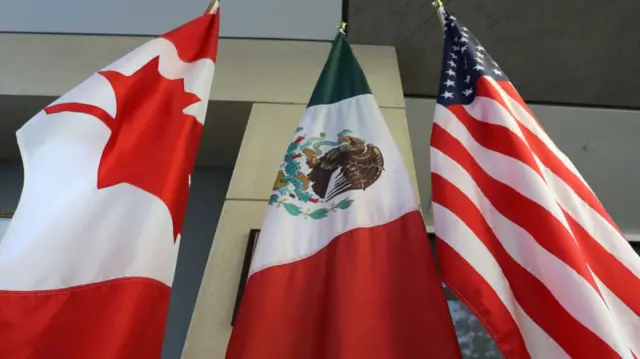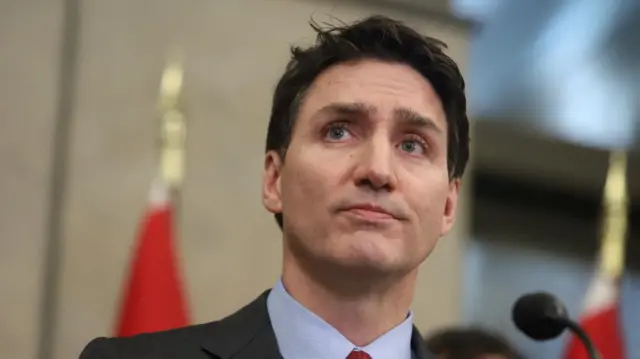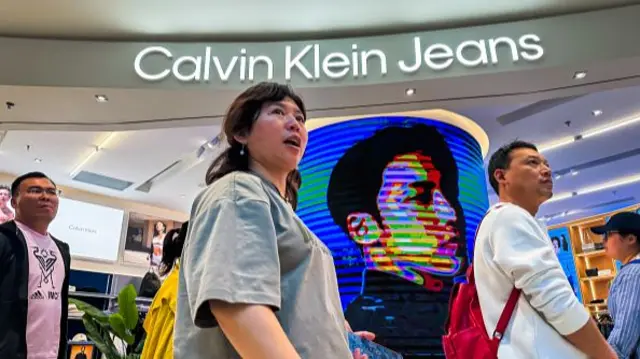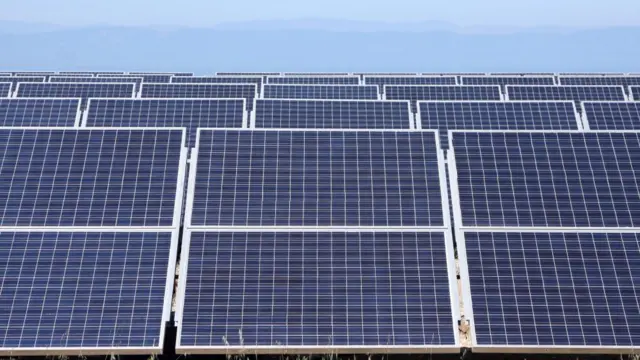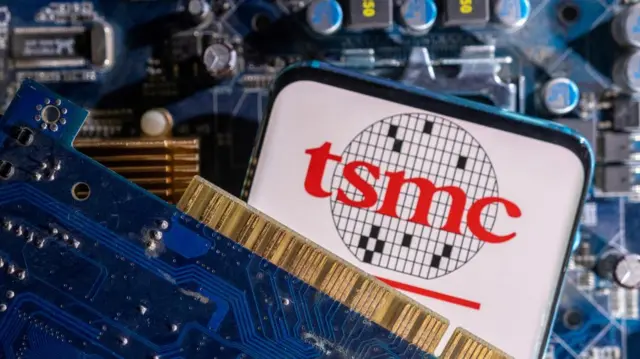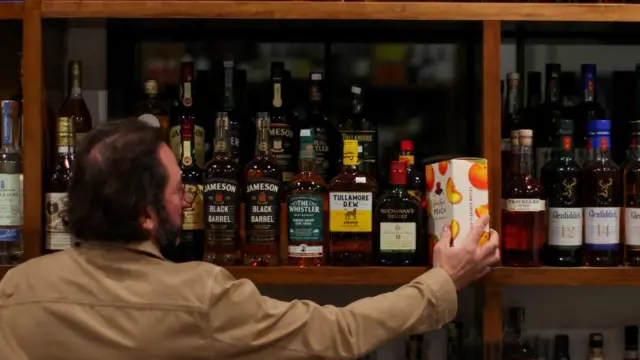Trump's tariffs on China begin as Mexico and Canada negotiations continuepublished at 14:00 GMT 4 February
Asya Robins
Live reporter
US President Donald Trump warned that he would impose tariffs on China, Canada and Mexico when he won the election back in November.
Over the weekend, he took the first steps in enacting that plan, announcing a levy of 25% on Canadian and Mexican imports, as well as an additional 10% tax on Chinese goods.
This sparked a global sell-off on financial markets on Monday before an agreement between Trump and Mexican President Claudia Sheinbaum to halt levies on Mexican goods for one month brought some relief.
A few hours later, a last-minute call between Trump and Canadian Prime Minister Justin Trudeau resulted in a similar 30-day delay to taxes on Canadian goods.
But a US levy of 10% on Chinese imports has started today, which resulted in Beijing announcing retaliatory tariffs on a raft of American products.
These won't come into effect until Monday and our China correspondent Laura Bicker says this gives the parties some time to stop a spiralling tit for tat trade war.
And the next few weeks will bring clarity on the future of the US-Mexico-Canada trilateral trade bloc.
We're pausing our live coverage from London now but our colleagues in Washington DC will resume coverage on US politics with Trump set to meet Israel's Prime Minister Benjamin Netanyahu later today.
In the meantime, here are some stories from across the BBC to keep you updated:
